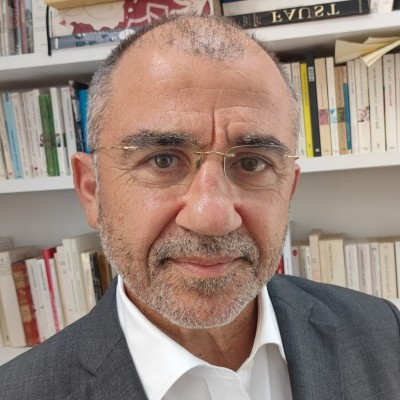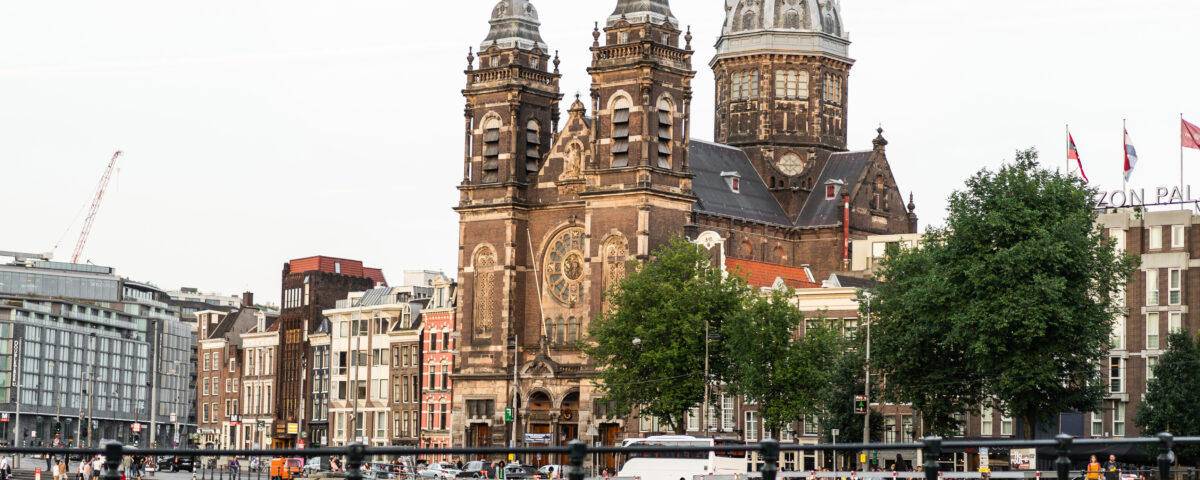The history of Amsterdam is intertwined with the history of Calvinist Protestantism, of French origin, which contaminated the Netherlands via French Flanders. The attraction of Calvinism is to propose a return to the truth of the Holy Scriptures, considered as the word of God or at least inspired by him. It is a kind of Koranic approach that is 700 years late. The rediscovered closeness to the sacred word of the book that each believer can make his own, prefigures a democratization of a religion that previously remained the exclusive property of the princes of the Catholic Church.
This newfound equality in front of God responds to the aspirations of the subjects of the European kingdoms who, finding dignity and brotherhood in it, sacrificed their lives by revolting against their kings. Thanks to this proposal, Protestantism emerged victorious in the northern countries of Europe, including the United Kingdom. The Catholics held out in the south, in Italy, Greece and Spain. In France, even if the revolution of 1789 is considered a crowning achievement of Protestant values, the stubborn resistance of the Catholic religion led to the status-quo of “laïcité”. However, dogmatic fire-eaters, so-called philosophers, such as Pierre Manent, play with intellectual dishonesty to put Catholic dogma back in the foreground and deny the virtue of “laïcité”. Even in Alsace, a Catholic bastion, benefiting from the concordat laws, Calvinist Protestants are numerous.
Amsterdam has been a land of immigration since the 16th century, welcoming all the Huguenots of Europe, Germans, French, Belgians, and then all the citizens of the world who were looking for a land of freedom. Holland, and Amsterdam in particular, is therefore a European land. It is not by chance that it hosts institutions that have a major role in the functioning of Europe or the world, such as the international court of the Hague.
These are not great ideas that have remained abstract, because if you open your eyes in the streetcars or buses, or in the suburbs of the city, you understand that these values are lived and shared by a whole population. Equality in the relationship with God through the sacred book leads to human equality; it also implies a wide diffusion of knowledge, first of all reading and understanding the scriptures. The duty of each is to help the other to acquire this understanding, while the other must make the greatest effort to achieve it. It is this open and liberal culture that made the Netherlands a great European intellectual place during the Renaissance, Erasmus was born in Amsterdam.
This change of mindset is due to the fact that dictatorships often use the means of keeping the people in ignorance in order to maintain themselves. We can affirm, in view of history, that Catholicism is a religion compatible with dictatorships, whereas Protestantism, as long as it does not sink into the fantasy of the chosen people, is a religion of democracy. If modern Islam had not deviated from one of its foundations, which was that every Muslim should have a direct relationship with God through knowledge of the Koran, it could also have been a religion of freedom. Today, however, Muslims in many countries have to accept the dogmatic readings of their mullahs, thus losing this personal and responsible relationship with their God. Max Weber in The Protestant Ethic and the Spirit of Capitalism argued that the spirit of contemporary capitalism was forged from the individual characteristics of Calvinism, i.e. the personal and individual relationship with God and the desire to know one’s predestination.
Thus, the idea put forward by Toqueville that individualism is the result of Democracy is inaccurate, it is the individualism generated by Calvinist Protestantism that generated Democracy.

